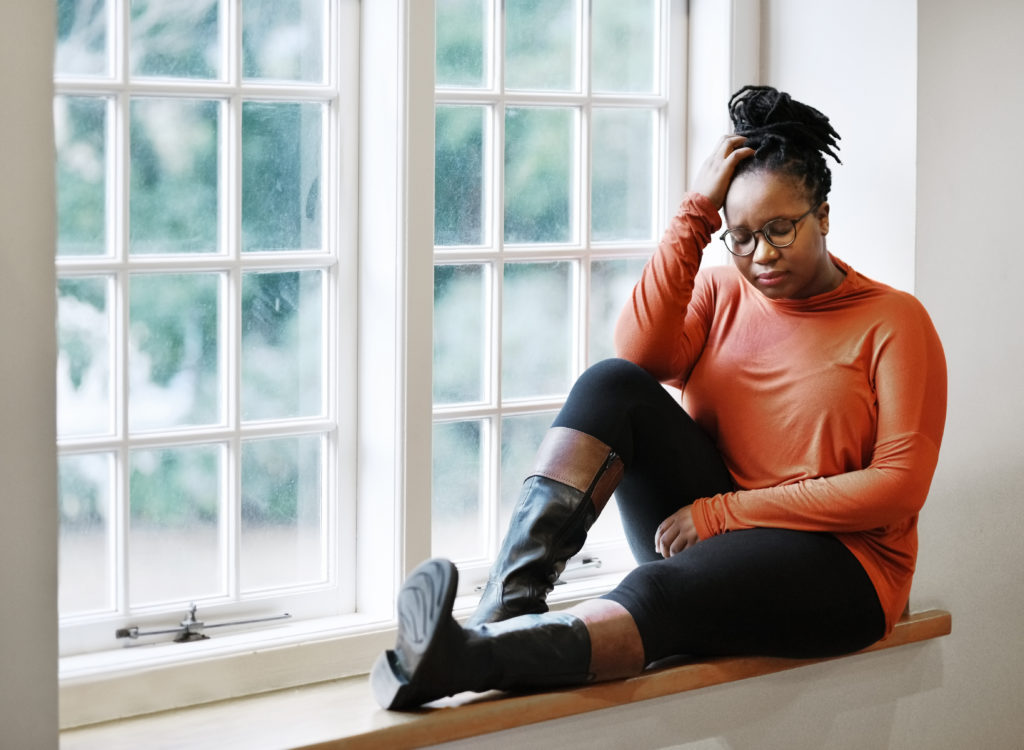
During these no so normal times it is important to be conscious of your mental health. Many of us are are not nearly as active, social, or motivated as we were before the pandemic hit. Have you noticed these changes about yourself? Or have you just been floating by waiting for things to go back to normal? If you haven't taken a moment to check on yourself in a while, now is a great time to give yourself a therapy session.
Approximately 1/3 of adults in the U.S. will meet criteria for a DSM-IV-TR (the psychiatric handbook) diagnosis in their lifetime. That is a lot of people, especially considering that most people see themselves as “normal” and everybody else as “crazy.” The most common diagnoses are depression and anxiety — which have even higher prevalence rates among women and those with fewer social-economic advantages (education, income, employment).
Most people (40–60%) never receive any mental health treatment. Common reasons for not receiving treatment include believing that the problem isn’t bad enough yet, the problem will go away on it’s own or that mental health treatment will not be effective. Additionally, a significant proportion of people do not receive treatment due to embarrassment and stigma associated with being in therapy or taking antidepressant medications.
Receiving mental health treatment is important and beneficial for many, particularly those who have severe disorders such as schizophrenia and bipolar disorder, or chronic and acute depression or anxiety. However, there are a number of behavioral steps that ALL people can take to improve their mood, well-being and daily functioning. Therapists trained in evidence based psychotherapy interventions can be invaluable in helping individuals increase motivation and implement these cognitive and behavioral strategies. However, with discipline, drive and determination many of these wellness practices can be implemented independently.
1. Get up, get dressed and get out of your home everyday. Lack of motivation, tiredness and fatigue, isolation and withdrawal are common symptoms of depression. Simply “going through the motions” of carrying out your typical daily routine is the first step in improving your mood.
2. Practice gratitude. When feeling down, you may distort your thinking to focus on only the things that aren’t going right in your life. This is called tunnel vision. Establish a routine of waking up and identifying the things in your life for which your are grateful. Expand your purview to notice the small daily pleasures that are already occurring in your life.
READ: Make Your Own Gratitude Jar!
3. Establish structure to your daily schedule. When people are depressed they often stop doing the things that they enjoy. They feel tired and unmotivated, and tell themselves “i’ll do it when I feel better.” However, there are mental health benefits to faking it until you make it. Sometimes the behavior comes first and feeling better comes second. Create a calendar of activities. Include obligations (work, doctor’s appointments, errands) and pleasures (exercise, movies, reading).
4. Set manageable goals and expectations. In my practice, people often identify vague goals such as “be happy” or “find my purpose” or “figure out why I do the things I do.” It is important to set goals that are 1.Specific 2. Manageable (small) 3. Realistic (doable, in your control). Think about your larger goals and break them down into smaller, time specific fragments. Don’t forget to congratulate yourself for each small step!
5. Spend time with friends. Research demonstrates that people with strong social support networks are happier, healthier and live longer. Identify the positive people in your life, make connections with these people — by phone or in person. Engage in enjoyable activities. Ask for help and support when you need it. Don’t be afraid to share with those you trust!
READ: Unapologetically Healthy! 26 of the Realest Reasons Black Women Walk
6. Exercise. With low mood can come difficulty sleeping or restlessness, leading to tiredness or fatigue, leading to excessive sleeping or napping. In turn, you might find yourself becoming less and less active and more and more sedentary. It is important to get up and get moving everyday. Start by walking around the block, doing a 20 minute you tube or exercise app on your phone or joining a gym.
7. Eat mindfully. Heavy, fat and carb laden fast foods can contribute to feelings of fatigue and sluggishness. Eat foods that give you sustainable energy such as fruits, vegetables, legumes and whole grains. A big part of healthy eating is planning your meals and snacks in advance.
8. Limit alcohol intake. According to the National Institute of Alcohol Abuse and Alcoholism (NIAAA) division of the National Institutes of Health (NIH), low risk drinking is no more than 3 drinks per day and 7 drinks per week for women and no more than 4 drinks per day and 14 drinks per week for men. You may find yourself having an extra drink or two after a long day to “de-stress” or “wind down” or to help with sleep. However, alcohol intake before bed can actually disrupt your sleep-wake cycle. Limit your alcohol intake and find other ways to self-soothe such as non-caffeinated tea, a warm bath, listening to music, or meditation.
9. Stop negative self-talk and develop self-compassion. People who are depressed have often become attached to an automatic negative tape they play in their minds of self-blame, guilt, shame, fear, regret, anger, ect. They may engage in social comparisons, leading them to be hyper critical and down on themselves. Notice the tape, pause and stop the tape.
10. Set healthy boundaries. Feeling down is often accompanied by feeling overwhelmed and frustrated which may lead to immobilization. Set limits and don’t be afraid to say “no”. Let go of feelings of guilt that can accompany not being able to meet everyone’s expectations all the time. By taking care of yourself first, you are better able to take care of other people and attend to the myriad obligations around you. Identify your own wants and needs and align your behaviors so that your needs are being met.
 Inger Burnett-Zeigler, PhD is an assistant professor, clinical psychologist, published social science writer, public speaker and avid yogi.
Inger Burnett-Zeigler, PhD is an assistant professor, clinical psychologist, published social science writer, public speaker and avid yogi.
Article originally featured on Medium.









